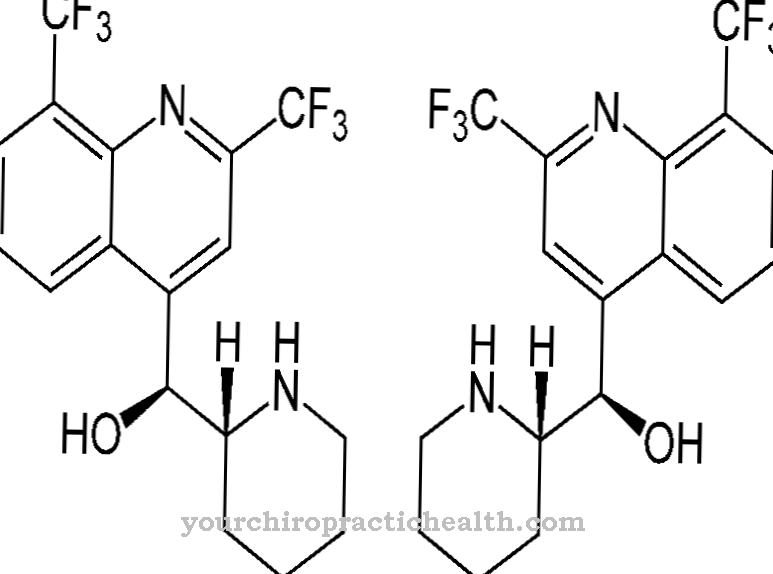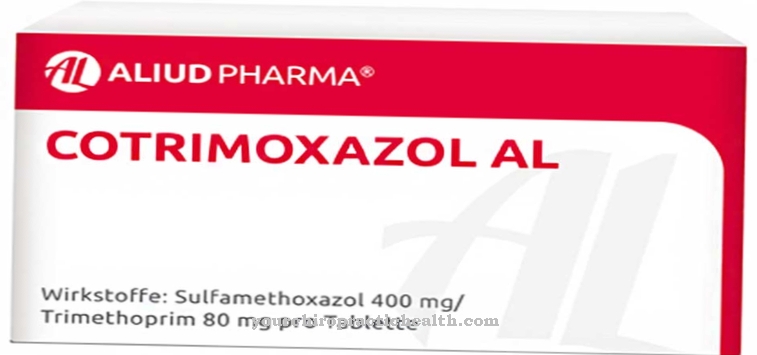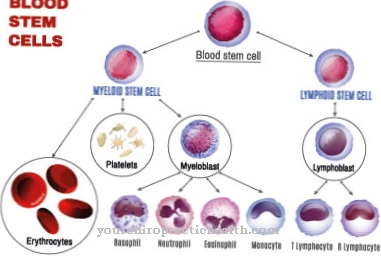The Adjuvant is a pharmacological adjuvant that enhances the effect of the drug administered together with it. It usually has little or no pharmacological effect.
What is an adjuvant?
The term adjuvant is derived from the Latin verb adjuvare, which means to help. Adjuvants are administered together with a reagent which alone would not work at all or only weakly. The effect is increased by adding an adjuvant to the drug. For example, it can occur more quickly, be more pronounced, or the effective level in the tissue can be maximized, which in turn can result in an improved effect.
A common example of adjuvants are penetration accelerators, which ensure that pharmacologically active substances can penetrate membranes faster and in larger quantities.
An adjuvant is not to be equated with adjuvant therapy. The adjuvant is always added to the active ingredient itself or administered directly with it in order to influence its effectiveness. Adjuvant therapies, on the other hand, are different forms of therapy that are used in parallel, with the adjuvant treatment being an accompaniment to a main therapy.
Pharmacological effect
Adjuvants themselves should have the least possible effect on the body and organs and the properties of the drug they are strengthening should be influenced as little as possible. Ideally, they only affect the drug they are administered with.
Among other things, an adjuvant can ensure that an active ingredient works more quickly because its concentration in the tissue increases or it can penetrate inhibiting membranes sooner.
Chemically, adjuvants are often solutions and emulsions. A distinction must be made between such adjuvants and active ingredients which are used in the context of adjuvant therapy and which are also referred to as adjuvants. These are in fact pharmacologically effective, which is the purpose of this form of therapy.
Medical application & use for treatment and prevention
Adjuvants come in almost every form of drug delivery. Almost every patient knows them, for example, from headache pills. Substances such as lysine and caffeine ensure that active ingredients such as ibuprofen or paracetamol work better and faster because they can penetrate the tissue at a higher concentration. Caffeine is already considered an adjuvant therapy because the substance dilates the blood vessels and additionally supports the effect of the actual active ingredient.
Adjuvants can also be administered intravenously, for example by infusion or by giving a single injection. They are used, for example, to receive vaccines against influenza, tetanus, diphtheria or hepatitis A. In these cases, aluminum hydroxide is used as an adjuvant. In this form, the adjuvants influence the immune system in such a way that it becomes particularly susceptible to the active ingredient in the vaccine.
Risks & side effects
Adjuvants should be as free of side effects and interactions as possible.In practice this cannot always be guaranteed, so with every drug it must be taken into account that the adjuvant contained in it can have side effects.
The aluminum hydroxide used in vaccines, in particular, has repeatedly come under strong public criticism, although it has not yet been proven whether it really carries the risks attributed to it. These suspected side effects include, for example, ADHD or later Alzheimer's and dementia.
The aluminum hydroxide adjuvant, in particular, is risky because it triggers inflammation at the puncture site, which increases the number of immune cells in the area, so that the active ingredient is utilized by them to a greater extent. However, it is hardly degradable and can remain in the body of the vaccinated patient for a very long time, where it could cause infections in the future.
With each adjuvant, it must be taken into account whether the patient has had contact with the substance before and whether this has resulted in hypersensitive or dangerous reactions. The attending physician will ask about this before the medication with the adjuvant can be administered to the patient.









.jpg)



.jpg)














